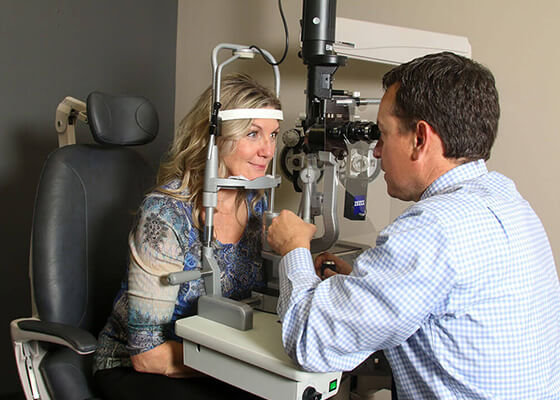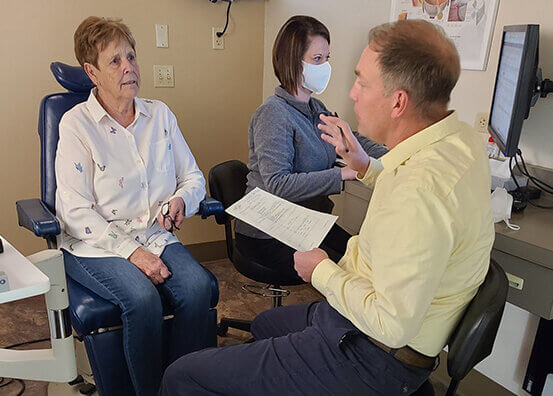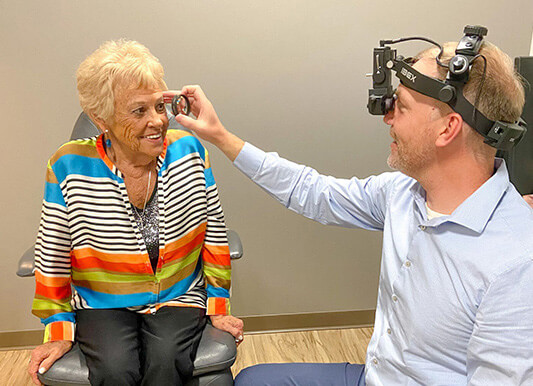Cataract Surgery Near You in Missouri
Cataracts are a common eye condition that gradually develop over time, causing increasingly cloudy vision. The only way to truly treat cataracts is through cataract surgery — and you can trust our expert team at Missouri Eye Consultants to personalize yours, and restore your crisp, clear eyesight.

What Are Cataracts?
A cataract is a clouding of the clear lens of the eye, and they usually result from the natural aging process. Cataracts often progress slowly, so you may not notice differences in your vision early in their development.
Common symptoms of cataracts include blurry sight, trouble seeing at night, and difficulty reading, driving, or focusing on fine details. While glasses and contact lenses can help with the initial symptoms, eventually cataracts will impair your eyesight enough that they require removal via surgery.
Cataract Surgery: Pre- & Post-Op Care Instructions

Cataract Surgery at Missouri Eye Consultants
Missouri Eye Consultants has been a trusted eye care provider for more than 60 years and our doctors’ expertise in cataracts and surgeons’ expertise in cataract surgery are respected through the state. We will help monitor your cataracts early in their development and help you to decide when is the appropriate time to proceed with surgery. We will guide you through the surgical process to treat your clouding lens and restore your natural vision, contrast, and vibrant colors.
Cataract surgery is impressively safe and most patients are able to resume normal activities very soon after surgery. It’s a short wait for permanently improved vision!
Am I a Candidate for Cataract Eye Surgery?
If you’re suffering from blurry or distorted vision due to cataracts, you’re most likely a candidate for surgery. During your comprehensive eye exam, our highly trained doctors will evaluate your eyes with the latest technology, imaging your lens to determine if you qualify for surgery. If you’re in good health and don’t have complicating conditions, our doctors should be able to improve your eyesight through cataract surgery!

Why Choose Missouri Eye Consultants for Cataract Surgery?
Our doctors combine their skills and familiarity with advanced technology to safely and effectively perform cataract surgery. We’ll customize a cataract treatment plan based on your eye and its specific needs to ensure quality results, and a smooth recovery. We work in the communities we live in, and we’ll work with you to make sure you have the vision you need to enjoy the beauty around us.
Your Cataract Surgery Doctors


